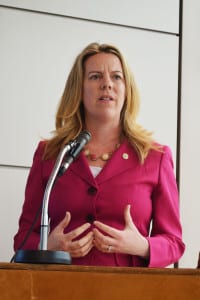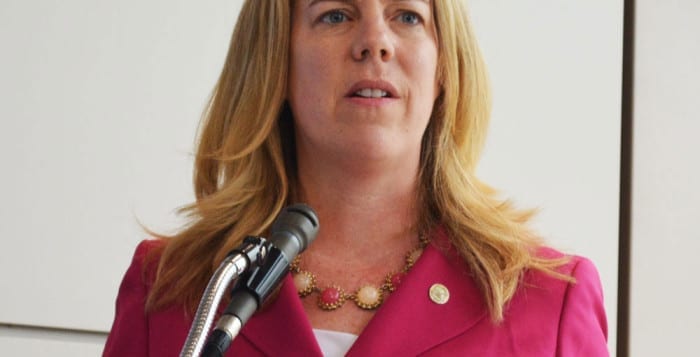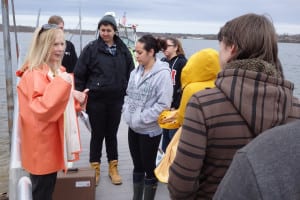A two-tiered piece of legislation on the county level is looking to tackle some of Long Island’s most pressing issues, from the medicine counter to the waterways, all in one fell swoop.
A proposal to establish a drug stewardship program throughout the county could potentially build upon existing drug take-back programs, playing off recent legislation enacted in Alameda County, California, and ultimately keep drugs out of our drinking water, lawmakers said. Suffolk County Legislator Kara Hahn (D-Setauket) introduced the piece of legislation earlier this summer with hopes of providing residents with more convenient ways to get rid of their unused medicine before the county’s next general meeting in October.

“This is a duel benefit,” Hahn said. “I’ve wanted to find a way to get pharmacies to be required to take back prescription drugs, and this doesn’t quite require that, but it could be an end result.”
The local law proposal argued that while pharmaceuticals are essential to the treatment of illnesses and long-term conditions, residents at large still do not dispose of them properly, running the risk of certain drugs ending up in public drinking water supplies and causing harm to the environment. And with Suffolk County sitting on top of a sole source aquifer, which provides residents with necessary drinking water, Hahn argued that protecting the aquifer was critical to the health and safety of Long Island as a whole.
“The idea is to begin a discussion on this. Federal regulations have changed to allow pharmacies to take back certain drugs, but the state level has been dragging their feet on the local regulations in order to make this possible here,” Hahn said. “They can’t drag their feet any longer. All kinds of medicines are being found in our water when our health inspectors do their sampling. We have to find a way on both these fronts to control what is happening.”
The legislator said she was playing off the recently passed law in California, which also established a drug product stewardship policy requiring manufacturers to design and fund collection programs for medications. Similar programs have also sprouted up in Canada, France, Spain and Portugal.
A spokesman for Hahn said the bill would essentially establish a manufacturer-administered pharmaceutical take-back program that would provide residents with convenient ways to safely and environmentally responsibly dispose of expired and unneeded medications.
“This program, if adopted, will primarily impact and improve water quality rather than deal with drug abuse,” Seth Squicciarino, the spokesman, said. “However, it is reasonable to assume that if there are less unused, unneeded and forgotten prescription drugs in medicine cabinets, it could reduce drug experimentation especially among first time users.”
Currently, residents’ only course of action when looking to properly dispose of unused medicine is to bring their prescriptions to the 4th Precinct or 6th Precinct of the Suffolk County Police Department, which then dumps the drugs into an incinerator — which Hahn described as the most environmentally friendly way to dispose of drugs right now.







